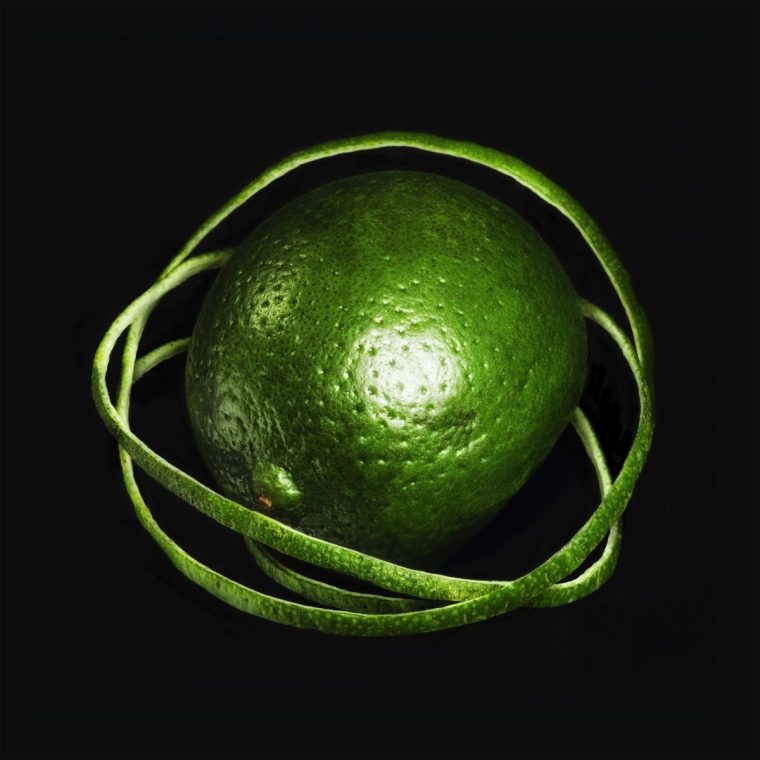The finest lyricist of her generation is explaining why words are, ultimately, inadequate. “Everything you say is only a fraction of everything you feel,” says Adrianne Lenker, the dizzying creative force behind alt-folk act Big Thief, and a solo artist of renown. “Trying to think about things as deep as love, trying to get to the bottom of anything with words – it’s the tool we’ve been given, but it’s not the best one.”
Her band members chip in with what they think is “the best one”. “Lovemaking,” confirms drummer James Krivchenia. “Eye-gazing,” counters Lenker. “Hair-petting,” suggests guitarist Buck Meek.
The redundancy of language is the theme of “Words”, a song on the band’s sixth album, Double Infinity, released next month. Including her solo outings, it is the 34-year-old Lenker’s 11th studio record in as many years: her last, the solo album Bright Future, was nominated for a Grammy, and she for a BRIT. Big Thief are getting big too: in September, they headline the Hollywood Bowl for the first time; in spring, they’ll play four nights at Brixton Academy.
The band formed in Brooklyn in 2015. While the “alt-folk” tag may have been instructive back then, conventional genre lines have long since evaporated: their last UK tour oscillated thrillingly between country and metal.

We’re in a large suite at a five-star London hotel, and yet within this world of industry success, with its metrics of awards and sales, they have carved out their own. Playing live, they appear oblivious to established rules. Every show is different in setlist, narrative and mood. The most exhilarating part of seeing Big Thief on tour is the regularity with which miracles happen. “This is a new song,” frontperson and principal songwriter, Lenker, will say, most nights, before playing the greatest thing you’ve ever heard in your life.
Last summer, supporting PJ Harvey in a London park, that song was “All Night All Day”, now the highlight of Double Infinity. It is quite staggeringly beautiful. What was its genesis? Lenker grins, exposing her silver tooth. “Well,” she drawls, “is this a rated-PG article? ’Cause if I actually tell you, I dunno if you’re gonna be able to include it in your write-up.” She breaks into a delighted, dorky laugh. The song’s opening line is, “All night, all day, I could go down on you”.
Dressed in a patchwork jacket and baggy, non-matching patchwork trousers, she gets comfy on the sofa. “That song just came out like so many do, without too much thought,” she shrugs. “It’s a spiritual lovemaking song. Of course, it was inspired by making love to my girlfriend” – she catches herself, grins again – “or ‘with her’, rather, not just ‘to her’. But it’s not a personal song about me making love.” She races through the lyrics: that heartstopping leap from the everyday to the eternal, “God is good/ Or whatever made the mouth”.
“It’s taking the shame out of lovemaking,” she explains. “There’s so much shame in our bodies, and in sex, in our culture.”
Krivchenia, in a chair near the window, chimes in. “I had only heard that song a capella for a couple of months,” he says to her, “because you sang it over the phone one day.” As he and Meek enthuse about how they knew it was special, and felt pressure to find a fitting arrangement, Lenker falls quiet, only to be suddenly re-energised by thoughts of her song.

She begins to talk animatedly, and keeps going for four straight minutes, throwing a shaft of light onto past romances. “There’s that line, ‘swallow poison, swallow sugar’,” she says, “with poison and sugar being one and the same: it’s this intoxicating thing that makes you high, that experience of touching something and thinking it’s love, and that – in the end – being the thing that can hurt you. There’s this attachment that two people can feel without too much work – but love itself is something entirely different. And I think it’s this beautiful recognition, in that song, of ‘I know your love is neither poison nor sugar’, it’s… the real stuff.” That real stuff is what she has found with her partner, singer-songwriter Staci Foster.
Once more, though, Lenker feels the limitations of language. “Because love’s just a name,” she continues, paraphrasing her lyrics. “It’s, again, the word being small compared to the actual thing, which is indescribable.”
Sex, meanwhile, has been “kinda trashed” in society and on TV, with the song intended as a corrective. “Gentleness and patience within that space are almost radical,” Lenker says. “I want more art that goes into that deepest place of it, in a world where it’s often-times just cheapened or abused. I was craving that, and so that’s why I think that song came.”
The song – and the album – centres on one of those pieces of terse, open-hearted Lenker perfection, as she croons: “Let patience reign.” In an online songwriting course she ran last year, she stressed the value of simplicity. Is there an example of which she’s particularly proud? She chooses a line from an old live favourite, “Happy with You”, which has made the new record. “I mean, ‘I’m happy with you, why do I need to explain myself?’” Then she adds, “Shit fuck”, at which point it becomes clear that she has upended her mug of tea onto herself. “I’m so jetlagged,” she murmurs, dabbing at her lap. “Sorry. I’m a bit… loose.”
Krivchenia steps in: “Most songwriting is dancing with that art of, ‘How do I simply, clearly explain something vast and unexplainable?’. It’s in that Lucinda Williams tradition where more words would make it have less meaning.” Meek mentions another Double Infinity track: “‘No Fear’ is that way, as well.” He turns to Adrianne. “All of your songs have that quality,” he says. “‘Change’ hits that on the head, for sure.”

“Change”, which opened the band’s previous album, is one of her masterpieces, shifting the listener’s perception of death, just as her track “Sadness as a Gift” reconfigures our grasp of grief. These songs give us a different way of comprehending pain. Is the idea of Lenker’s music being a lifeline and a solace for the listener something that resonates with her?
“Erm…” She sighs, pauses. “It is that for me,” she says, with an arresting sincerity. “So in that sense: yeah. I don’t really…” She tails off, the weight of the idea apparently unwelcome and a little exhausting. “The way other people receive it flows in and goes right out. I don’t have the capacity for trying to wrap my mind around what it is for other people, but I know that for me it’s been a lifeline and a solace. It’s been healing. It’s been those things for me, so I guess it would make sense if it’s that for others.”
What has surprised her, she says, is how much her recent confessional songs have resonated. Lead single, “Incomprehensible”, follows solo tracks “Real House” and “Nothin’ Before” in mining her personal life in a strikingly straightforward vein. The latter, as yet unreleased, details her relationship – and break-up – with Meek; when I mention the song, her gaze flits to him, and they share a knowing look. What the look means is impossible to know.
Has there been a conscious shift towards that type of composition? “It’s cool you picked up on that,” Lenker says. “They are probably my most raw songs.” She pauses. “What would you call it, that style of writing?”
“Narrative?” suggests Meek.
“Yeah, but aren’t they all?” she asks. “What makes those songs different?”
They feel very literal and direct, I say.
“Yeah,” she agrees. “It’s like a journal entry. I’m sure it’s nothing too new – it’s just leapt out into a new level. Because I definitely felt that during ‘Real House’. I was like: ‘Woah, this is pretty raw’.”
At a Kilkenny cathedral last year, she finished her show with that song about her childhood, the tears streaming down her face. Whether anyone else would be affected, though, remained a mystery to her. “I thought, ‘Are these too personal? Will people be able to relate to these?’ But it’s funny how sometimes the more detailed you get, the more universal it is.”
Sonically, Double Infinity is a departure. Krivchenia says the qualifying criterion was whether a song got the listener going: “Am I driving faster when I’m listening to this?”
They recruited musicians they admired, who heard the songs for the first time in the studio and responded on the spot. Lenker describes the results as “floaty, shimmery and uplifting”. It is, she says, “a record about everything”, tied together by a feeling but covering the same big themes she has always written about: “birth and death and longing and grief and love and intimacy and transformation”.
And, as it turns out, the shortcomings of doing so.
In Lenker’s signature song, “anything”, she memorably declared that she didn’t “wanna talk about anything”. The band’s anthem, “Not”, required the physical musical expression of a tortured guitar solo, language itself having proved insufficient. In her new song, “Words”, Lenker revisits the subject. I ask if she can elaborate.
“I would, but words fail me,” she says, laughing. “I mean… kinda, really. So much of what we place value on is within words, but when you try to describe music, words fall short, because only music can describe music.” She gestures to the huge windows behind me, peers through the blinds. “And you could try to describe those clouds outside right now, but only really those clouds can describe themselves in their cloudness, you know?”
Then, having expressed that last thought in her most whimsical, abstract manner, she says something almost fierce: “There’s so much integrity in how a human being moves through the world. Less in how well people can talk about how they move through the world.”
Double Infinity is released on 4AD Records on 5 September
